Back To Our Electric Future (and Past!)
The sky people versus the ground people for the future of the world
“We will make electricity so cheap that only the rich will burn candles.”— Thomas Alva Edison, backed by British capital.
“We will make electric cars so cheap that only the rich burn fossil fuels.” — Charles Johnson

Empires require power. Power, to the political scientist, is about who decides and who can force his will on the course of human events. This is the world of men.
You might even have pretended to read Robert Caro’s book, The Power Broker: Robert Moses and the Fall of New York, because you wanted to seem sophisticated and because a bunch of venture capitalists and politicians (am I being redundant?) were lying to you about having read it. They tend to lie often, most often about themselves. Don’t blame them! They’re just marketers. To quote Obama, "I think about Robert Caro and reading The Power Broker back when I was twenty-two years old and just being mesmerized, and I'm sure it helped to shape how I think about politics." Uh huh. Like I said, marketers.
Power, to the physicist, is work over time. This is the world of machines.
When my grandfather declared that there was no such thing as a labor-saving device because you’d just get more work done, he was expressing this idea. In economics, we call it “increased worker productivity.”
To run an empire, you need the world of machines and the world of men in harmony. To the extent that empires can no longer project power — of either the world of machines or the world of men — they fall.
The first empires were slave empires. They were inherently unstable because — surprise! — no one wants to be a slave and no one wants his son or daughter to be a slave either. Slavery, though, can be quite popular especially if you don’t call them slaves and tell yourself all kinds of lies about how slavery is justified.
And lest you think we don’t have slaves today, do you want your child to be an Uber driver? A Doordasher? Why is it that so many people are willing to risk everything to break into America’s labor market, including what can only be described as periods of slavery? What do you think the Uighurs are, if not slaves?
Everyone wants slaves. If you love always low prices, you love slaves too. Sometimes you’ll even justify it to yourself and say that your slaves are doing the jobs that Americans won’t do (because they’re bad). Or you’ll say that they are workers just working. You might even lie and say that it’s part of the American dream to be a slave.
Yes, everyone wants slaves. That is, except for those of us who really want machines. My toaster never went all “Benito Cereno” on me. Machines are pretty great. They do what you tell them. Slaves run away from you. It’s costly to go and catch them. Surprisingly they don’t want to be caught. Is your refrigerator running? Better run and get it! But seriously have you ever had to chase down your refrigerator?
Just as rock beats scissors, machines beat slaves in the game of empire. Machines run the world with the help of the men who program them i.e. tell them what to do. They’re even flying around in space taking pictures and patrolling the seas. Why they’re even helping write this drivel.
The Anglo-American empire, with its loving of tinkering and invention and gardens, can’t really be beat when it come to inventing but it can only be overwhelmed, especially by the Han Chinese, who are a lot more willing to enslave their people than we are ours.
The reason we care so much about artificial intelligence is that we know, deep down, that the default setting of the human race is Han Chinese and that they generate a lot more data than we do. They are more organized and they are a lot meaner too. Yup, there are a lot of more of them than there are of us, and if we’re not careful, they’ll assimilate us and add our biological and technological distinctiveness to their own. Our culture will adapt to service them. Some of their allies even tell us that resistance is futile — give up and love your Chinese overlords who promise that they’ll not turn you into Tibetans or Uighurs. Why they might even give you a Universal Basic Income! Wouldn’t that be nice? That way, you can work on your novel or learn a new language on Duolingo but if the pandemic has taught us anything you’ll probably just watch porn Netflix all day!
The only way to beat the Chinese is to reassemble the Empire in a new form — an electrified AUKUS. You’ll need power to do it and you won’t be able to rely on the Russians (oil) or the Chinese (slaves). To be sure, you might even be able to get new sources of oil (though not without risking environmental ruin or pipeline ruptures) or even new sources of slaves (Turkey, India —making the new iPhone baby! — Indonesia, etc. ) but all of these systems are inherently unstable. Slave revolts or labor strikes — but I repeat myself — are costly and annoying.
No, you’ll need new means of getting power if you want to bring back that empire. You’ll need electricity—fast. Machines, especially server farms for all that data, need electricity. Do you think it a coincidence that the server farm companies are in Washington State — right next to the cheap hydropower of the Grand Coulee Dam?
Fortunately, the Anglo-American alliance has been here before. After all, it was the British financing that backed two American originals — and electrification greats. Their successes literally illuminated the world.
Ben Franklin
Thomas Alva Edison
We will explore the Getty family and electrification at a later date. We will also look into the empirical fact that the greats in this space — Franklin, Edison, Vannevar Bush, and William Shockley — are all of English stock. Yes, I know, we’re told all these theories about immigrants but if you want to do some electrification, you need an Englishman tinkering — or at least his money.
How did electrification happen? Through Anglo-American financing, of course.
So, I suspect, given the history, it’ll happen again. Indeed my suspicion is that the large funds in the United Kingdom will electrify the American vehicle fleet and then the world.
This’ll be a struggle, no doubt, especially as the oil lobby doesn’t want it to happen. Nor, if we are honest, does the slave lobby. But there’s no alternative.
Oil men don’t like investing in electrification. Slavers don’t like machines because they don’t really understand them. There weren’t many horse buggy folks who invested in the early automobile. A lot of y’all won’t make it. We used it to call it creative destruction but it’s really more like industrial assassination.
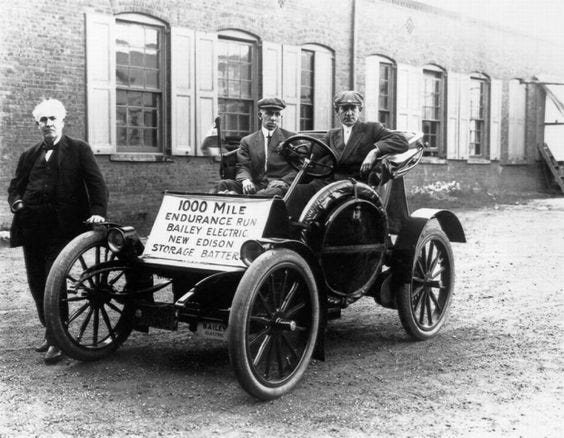
To talk smart about electric cars you need a reading list.
First some rules: Ignore the mainstream biographies on Franklin and Edison. They are trash at worst and mush at best. No Chernow! No Walter Isaacson! No, no, no! You’re better than that. Have some self-respect and have a gander here.
Philip Dray, Stealing God’s Thunder: Benjamin Franklin's Lightning Rod and the Invention of America (2005)
Gene Adair, Thomas Alva Edison: Inventing the Electric Age (1997)
Louise Albright Neyhart, Henry Ford, Engineer (1950)
Steven Watt, The People’s Tycoon: Henry Ford and the American Century (2006)
Richard Snow, I Invented The Modern Age: The Rise of Henry Ford (2014)
Jeff Guinn, The Vagabonds: The Story of Henry Ford and Thomas Edison's Ten-Year Road Trip (2019)
Some of you are of the documentary bent. I share your love.
Sundance’s Who Killed The Electric Car? (2006)
Ken Burns’s Ben Franklin (Four Parts) (2022)
BBC’s The Wizard Who Spat On The Floor (1972)
American Experience’s Edison (2015)
Of course let’s not forget that electricity is a psyop as much as anything. Electric power meant political power. "[Franklin] snatched lightning from the sky and the scepter from tyrants,” French noblemen Anne-Robert-Jacques Turgot declared of the “electric ambassador.”
Ben Franklin’s autobiography is mostly satire and propaganda but most of all its a cover. Why else do you think that Elon Musk likes it so much?
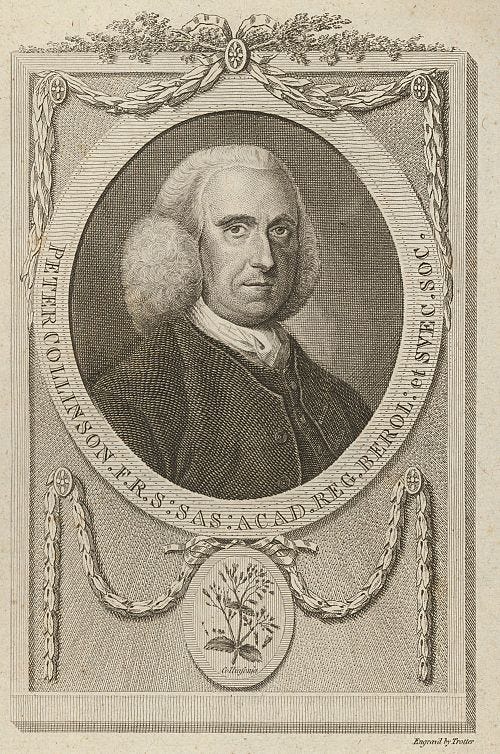
Peter Collinson put himself at the center of an international scientific correspondence. He seems to have been the seed stage investor who spotted and developed Franklin just as his brother James and he developed a successful botany business.

Collinson is the one who gave Franklin his original experimental equipment and quickly disseminated all of Franklin’s experiments throughout Europe. He was his hype man.
Was Ben Franklin a construct? Of course he was.
Most attention has focused on how Ben Franklin was self-constructed. Few have dared focus on his role as a probable spy for the British.
London’s Royal Society made him the first person living outside of Britain to receive his prestigious Copley medal. One English scientist compared him to Newton. Others compared him to Galileo. German philosopher Immanuel Kant said that Franklin had “stolen the fire of heaven” and dubbed him a “new Prometheus.”
Dray says it best:
[His] “Franklin rods” represented the fulfillment of two important strands of eighteenth-century scientific thought: the belief that science should be based on empiricism, that which could be observed, and the confidence that an empirical approach to science would lead to the development of innovations beneficial to mankind. (Dray 14)
He was, in other words, a made man in the Enlightenment. True to form, he was his creation. If you look up “lightning rod” in the Oxford English Dictionary — really where else? — you’ll find it has two definitions:
a metal rod or wire fixed to an exposed part of a building or other tall structure to divert lightning harmlessly into the ground.
a person or thing that attracts a lot of criticism, especially in order to divert attention from more serious issues or to allow a more important public figure to appear blameless.
Who then was Franklin covering for? Franklin’s persona, in my view, was a weapon. Here was a Continental that the Crown could do business with and who they could foist off unpleasant ideas to test run in the Colonies. Franklin was only too happy to take credit — but never to patent — his creations.
I pay close attention whenever I see Franklin out in about. Try as they might to cancel Andrew Jackson, no one dares touch Franklin’s vaunted place on the $100.
Professor Carroll Quigley, inspirational to both President Bill Clinton and Speaker Nancy Pelosi, believed that there is a vast conspiracy of Anglo-American bankers and elites running the world. Franklin remains the undisputed chairman of the board.
Why, the secret reading groups which run the world might even like dinner parties and private libraries. They might have learned as Rhodes scholar Bill Clinton claimed to learn from Quigley when he announced for the presidency —
“The future can be better than the past, and that each of us has a personal, moral responsibility to make it so.” Bill Clinton told his audiences, “that is what the new choice is all about....We are not here to save the Democratic party. We are here to save the United States of America.”
And the best way to save America, is to invest in, and invent, the future.
***
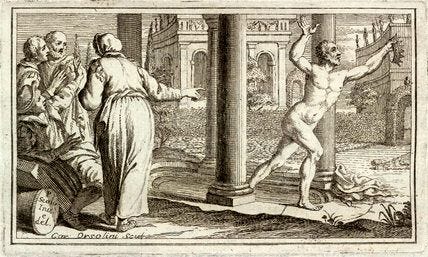
We’ve already talked about how you can stage a sabotage and how you build a construct and how we are living in the construct wars.
You might ask how long this has been going and the answer is that it has always been going on.
Can you stage a discovery? Of course. Do you really think Francis Crick, James Watson, and Rosalind Franklin all worked together on the structure of DNA? Or was it decided that it would be good for world affairs if a Brit, an American, and a German Jewess all discovered it together? Wouldn’t that be nice?
How many “discoveries” are fake? Quite a number, I’d wager.
We’ve elsewhere discussed how many founding stories of companies are fake and also how many conversions are fake. But what about scientific discoveries? Or do you still believe in what science fiction writer (and CIA consultant) David Brin calls the cult of the lone genius?
I’ve come to believe that cult is a way of discouraging brilliant people from building the kind of people skills necessary to really make things happen. If you get all the enemy nerds refusing to work together and your nerds work together, you win.
If you can fake a discovery, you can certainly put yourself in the right position to be struck by lightning.
There’s another question here that’s lingered since Franklin, Edison, and Tesla. Can you harness lightning? And if you can which states might benefit? There sure are a lot of lightning strikes in Pennsylvania, Texas, and Florida.
Yes, I don’t necessarily believe the stories about Tesla but I don’t totally not believe them either. Do I think it plausible that venture capitalists might not dare to interrogate a charming young man with a plan to test out Tesla’s Power for The People? Yes, I really do, especially considering how timid many venture capitalists I have met have been. They don’t go for the truly crazy ideas. Believe me. I’ve been in the pitch meetings.
Now if you’re wondering in that last paragraph if I was talking about Nikola Tesla or Tesla the car company, that’s kind of my point isn’t it? The stories are awfully similar — almost like a program running, or maybe even a simulation.
It’s really weird that when Nikola Tesla died in 1943 that Dr. John G. Trump — Donald Trump’s uncle and an electrical engineer with the National Defense Research Committee of the Office of Scientific Research and Development — was tasked by the United States government to go clean out Tesla’s property. (Tesla had, in the final years of his life, received money from the Soviet Union so it wasn’t totally a strange idea that he might be a spy or at least up to no good.) As you know, the Trump Family absolutely have no deep state connections whatsoever. They aren’t Feds in the slightest and it’s just a coincidence that Deutsche Bank opened its first foreign office in 1979 in New York.
I’ll have more to say on Tesla once I’ve digested my thoughts more fully. It’s quite interesting that Tesla was likely Ukrainian or perhaps Russian. To what extent is Tesla’s correspondent rise and fall a product of Anglo-Russian relations against Germany? I couldn’t say but I don’t find any of the answers satisfactory. There’s a there there, but where?
And while we are supposed to hate Edison for ripping off Tesla, maybe the patriotic thing to do was to rip off the weird foreigner. Maybe it still is. Or at least make him work for you.
*****
A friend of mine has a theory that all these golden domes from the 1880s are, in fact, power stations, which was stored in large capacitors.
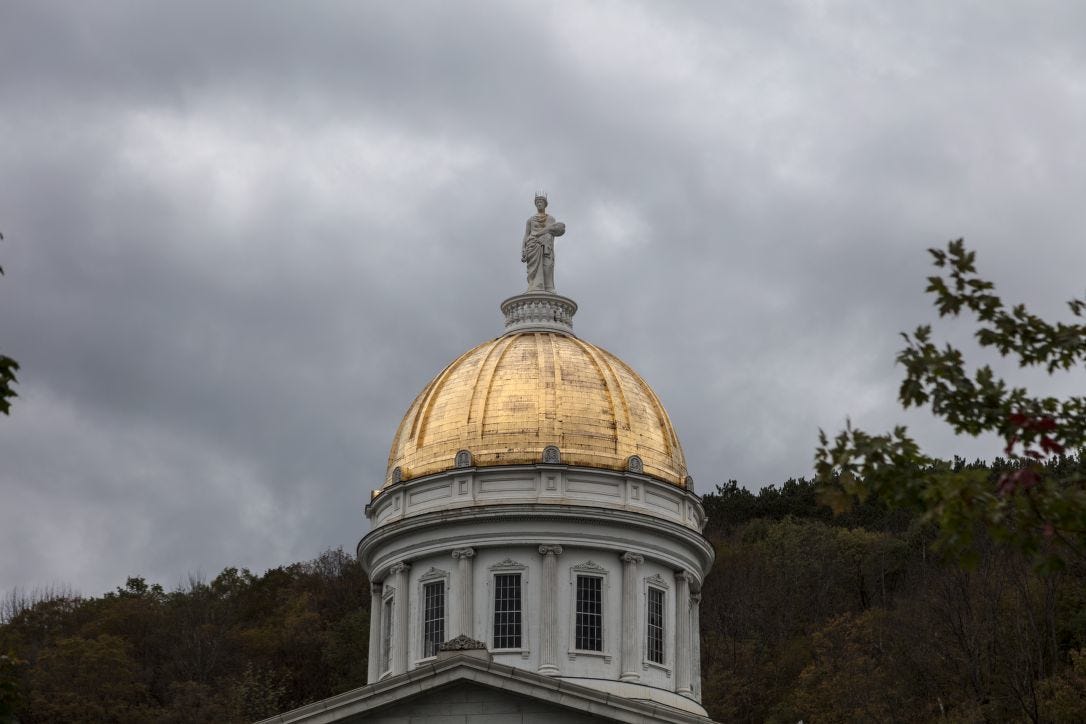
Is this true? Beats me. But I wouldn’t totally rule it out. We know gold is a good conductor of electricity and resistant to corrosion. We know that the gold is used in space satellites for precisely this reason.
Add to that physicist Richard Feynman’s notes about atmospheric electricity and things get really interesting. Someone even went out there to build a small scale motor.
After all, Wray notes in his biography of Franklin that churches were often catching fire, as they were the tallest buildings. Is it possible the ancients cracked the code of harnessing power from the sky?
Tesla believed that they had. He was reportedly obsessed with the Egyptian pyramids and his suppositions about the pyramids being able to focus pockets of energy seems to have been borne out — though, admittedly, proven by Russian scientists.
One day I’d like to test this for myself by building something larger. Yes, I might be going a little Ancient Aliens on you. But those guys — the Discovery people — now own CNN, the most trusted name in news, and as far as I can tell, they’ve been doing good job injecting truth into that network.
We like to believe that good ideas will rise but that isn’t how it really works.
No, you have to be a made man. You have to pick a tribe.
Edison picked a tribe. He was a card-carrying member of the Anglo-American deep state. Adair lays it out:
In 1837, Samuel Edison [Edison’s father] was forced to flee from Canada because of his participation in a failed revolt against the British-controlled government. Running from the royal militia, he narrowly avoided arrest by crossing the border into Michigan.
And while Edison’s great-grandfather Dutch-born John Edison was loyal to the British Crown, his wife, who had family in the Continental Army, sprang him after he was captured by the revolutionaries.
****
I like to read about decisions that make us technologically path dependent.
So why aren’t we all driving around in electric cars? The battery technology wasn’t there yet.
Here’s Gene Adair, Thomas Alva Edison: Inventing the Electric Age.
Edison’s relentless determination was especially apparent in his efforts to develop an improved storage battery. (Storage batteries, unlike so-called primary batteries, can be periodically recharged.) In the late 1800s, lead-acid batteries were the only kind of storage battery in use; they depended on a chemical reaction involving lead, lead peroxide, and a sulfuric acid solution to produce the electric current. Edison believed that a better storage battery—something lighter, longer lasting, and more efficient than the lead-acid type—was possible, and throughout the early 1900s, his laboratory struggled to produce one. By 1909, after many a costly and frustrating experiment, a battery based on a reaction between nickel oxide, iron, and a potassium hydroxide solution was perfected. It found a variety of uses—in devices such as miner’s lamps, train lights, and railroad signals—and became one of Edison’s best-selling products. However, the main use Edison had originally intended for it, to power electric car, faded when gasoline-powered automobiles, such as those produced by Henry Ford, came to dominate the growing car market between 1908 and 1910.
Edison’s hopes for the battery brightened in 1912 when Ford asked him to adapt the battery to a car ignition system. Ford was looking for a better way to start his Model T than the familiar, arm-wrenching hand crank. Unfortunately, Edison’s battery lacked sufficient power to start the motor and failed entirely in cold weather. But even though Edison’s battery did not suit Ford’s purposes, the inventor and the auto maker became good friends and later took vacation trips together. (Adair 120)
There have been many discussions about this period and even a film called Who Killed the Electric Car? which details General Motors killing its electric car program.
But what if we could get it right this time?
Ford is now investing $135 million into electric car development.
It’s worth considering an alternate history where the mob had laundered all its moonshine money into electric car generation rather than the internal combustion engine. Indeed it’s easy to see Elon Musk, backed as he is by the cartels and Chinese organized crime, as a kind of attempt at this very thing. Nor are you really allowed to consider that, perhaps, the black market and the innovations in logistics might still be connected today.
Critics rightly point out that California, which recently experienced a heat wave, can’t keep its grid running.
But I believe that there can be other futures. Enter, Aptera — the solar powered car, which I recently invested in.
But it’s only possible by looking at the past and by taking it seriously. We make it serious but thinking seriously.
I am proud to join Franklin and Edison and Ford in investing in a better America. I’m grateful to our real allies who imagine that world with us and for those friends who imagine it with me.




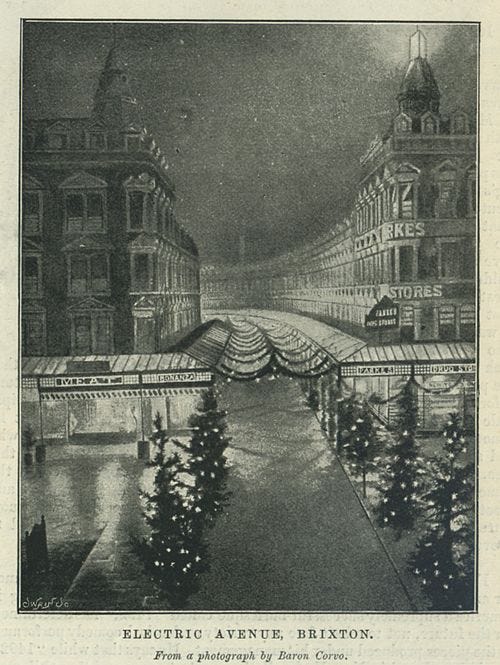

Electricity
By Hunter S. Thompson
They laughed at Thomas Edison.
It has been raining a lot recently. Quick thunderstorms and flash floods...lightning at night and fear in the afternoon. People are worried about electricity.
Nobody feels safe. Fires burst out on dry hillsides, raging out of control, while dope fiends dance in the rancid smoke and animals gnaw each other. Foreigners are everywhere, carrying pistols and bags of money. There are rumors about murder and treachery and women with no pulse. Crime is rampant and even children are losing their will to live.
The phones go dead and power lines collapse, whole families plunged into darkness with no warning at all. People who used to be in charge walk around wall-eyed, with their hair standing straight up on end looking like they work for Don King, and babbling distractedly about their hearts humming like stun guns and trying to leap out of their bodies like animals trapped in bags.
People get very conscious of electricity when it goes sideways and starts to act erratic. . .eerie blackouts, hissing, and strange shocks from the toilet bowl, terrifying power surges that make light bulbs explode and fry computer circuits that are not even plugged in...The air crackles around your head and you take a jolt every time you touch yourself. Your lawyer burns all the hair off his body when he picks up the cordless phone to dial 911.
Nobody can handle electricity run amok. It is too powerful...Ben Franklin was never able to lock a door again after the day lightning came down his kite string and fused that key to his thumb. They called it a great discovery and they called him a great scientist; but, in fact, he bawled like a baby for the rest of his life every time he smelled rain in the air.
I find myself jerking instinctively into the classic self-defense stance of a professional wire wizard every time I hear rain on the roof. That is an atavistic tic that I picked up many years ago in my all-night advanced intelligence electronics class at Scott AFB, on the outskirts of east St. Louis — where I also learned about pawnshops, oscillators, and full-bore lying as a natural way of life.
The stance was the first thing we learned, and we learned it again every day for a long, crazy year. It is as basic to working with serious electricity as holding your breath is to working underwater....
Lock one hand behind your back before you touch anything full of dissatisfied voltage — even a failed light bulb — because you will almost certainly die soon if you don't.
Electricity is neutral. It doesn't want to kill you, but it will if you give it a chance. Electricity wants to go home, and to find a quick way to get there — and it will.
Electricity is always homesick. It is lonely. But it is also lazy. It is like a hillbilly with a shotgun and a jug of whiskey gone mad for revenge on some enemy — a fatal attraction, for sure - but he won't go much out of his way to chase the bugger down if ambush looks a lot easier.
Why prowl around and make a spectacle of yourself when you can lay in wait under some darkened bridge and swill whiskey like a troll full of hate until your victim appears — drunk and careless and right on schedule — so close that you almost feel embarrassed about pulling the trigger.
That is how electricity likes to work. It has no feelings except loneliness, laziness, and a hatred of anything that acts like resistance...like a wharf rat with its back to the wall — it won't fight unless it has to, but then it will fight to the death.
Electricity is the same way: it will kill anything that gets in its way once it thinks it sees a way to get home quick....
Zaaappp!
Right straight up your finger and through your heart and your chest cavity and down the other side.
Anything that gives it an escape route. Anything — iron, wire, water, flesh, ganglia — that will take it where it must go, with the efficiency of gravity or the imperative of salmon swimming upriver.... And it wants the shortest route — which is not around a corner and through a muscle mass in the middle of your back, but it will go that way if it has to.
Some people had to have their loose hand strapped behind them in a hammerlock with rubber cords, just to keep their hearts from exploding and their neck nerves from being fried like long blond hairs in a meat fire when the voltage went through. But sooner or later they learned. We all did, one way or another.
One night — perhaps out of boredom or some restless angst about the fate of Caryl Chessman or maybe Christine Keeler — I connected a 50,000-volt RF transformer to one end of the thin aluminum strap on the Formica workbench that ran around three sides of the big classroom; and then I grounded the strap to a deep-set screw in a wall socket.
Severe shocks resulted when the generator jumped its limiter and began cranking out massive jolts and surges of RF voltage. A 50,000-volt shock ran through my stomach, just below my navel, burning a long, thin hole that I can still pull a string of dental floss through on wet nights.
It was horrible, and still is, but it was also a massive breakthrough; and I will never forget the warped joy I felt when the first surge of electricity went through them. They squawked at each other and flapped their arms like chickens....
My own pain was nothing compared to the elation of knowing that I had just made an unspeakably powerful new friend — an invisble weapon that could turn warriors and wizards into newts, and cause them to weep.
Washington, DC, 1989
Franklin was a double agent. Without him, the US couldn’t have successfully psy opped England in key moments that enabled independence.